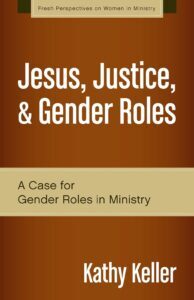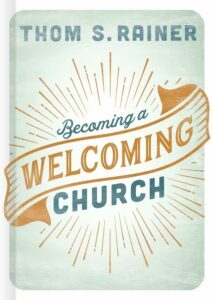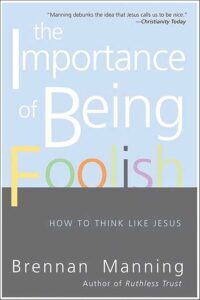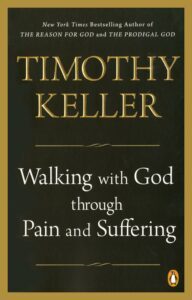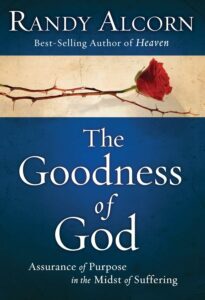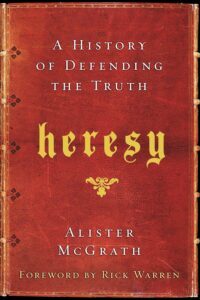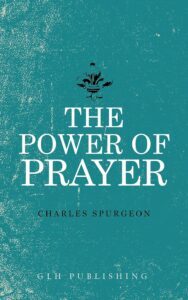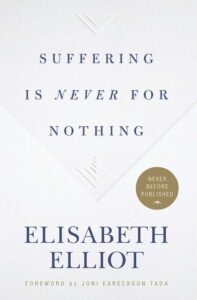Barnabas Piper's Blog, page 26
May 30, 2024
Kindle Deals for May 30
A few Kindle deals worth your mind and money today:
The Crucified Life: How to Live Out a Deeper Christian Experience by A.W. Tozer – $1.99

Jesus, Justice, and Gender Roles: A Case for Gender Roles in Ministry by Kathy Keller – $2.99
The Power of the Cross: Putting it to Work in Your Life by Tony Evans – $2.50
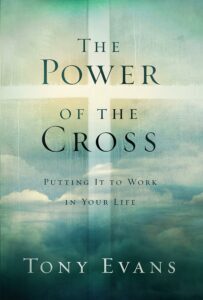
Becoming a Welcoming Church by Thom Rainer – $5.69 (and only $5.99 in hardcover)
The Everlasting Man by G.K. Chesterton – $.39
The Curious Christian: How Discovering Wonder Enriches Every Part of Life – $3.99
The Importance of Being Foolish: How To Think Like Jesus by Brennan Manning – $2.99
Warning to the Churches by J.C. Ryle – $.99
May 29, 2024
Curious Curmudgeons Episode 5: Graceful Exits and Fresh Starts
Leaving a church is never a simple decision. It’s comes with emotional and spiritual weight bearing down on us, wrestling with whether it was the right time to move on. This episode is all about those moments—whether you’re leaving due to painful experiences or positive life changes, we share practices and priorities to ensure a Christ-honoring exit. We share personal stories to reveal the complex dynamics of quietly disappearing versus formally saying goodbye, and how one’s role in the church and its size can influence these decisions.
We delve into the importance of open, humble communication and how a leadership’s response can reflect the church’s culture. If you’re married, we talk about the crucial role of prayer and thoughtful consideration with your spouse before making such a significant decision. Personal anecdotes underscore the ongoing struggle to forgive and the profound impact of God’s grace in healing and forgiveness, illuminating the path to moving forward with a clear conscience.
Once you’ve decided to leave, the next step is finding a new church that feels like home. We discuss the essential elements to look for, from gospel-centered preaching to genuine community warmth. And for a bit of fun, we wrap up with a conversation about music preferences—our nostalgic ties to old favorites and how those early influences shape our current tastes.
Listen to Episode 5Kindle Deals for May 29
A few Kindle deals worth your mind and money today:
East of Eden by John Steinbeck – $.99
The Grapes of Wrath by John Steinbeck – $.99
Travels with Charley: In Search of America by John Steinbeck – $1.99
Cannery Row by John Steinbeck – $1.99
Once There Was a War by John Steinbeck – $4.99
 The Winter of Our Discontent by John Steinbeck – $1.99
The Winter of Our Discontent by John Steinbeck – $1.99
Tortilla Flat by John Steinbeck – $6.99

The Log from the Sea of Cortez by John Steinbeck – $.99
Kindle Deal for May 29
A few Kindle deals worth your mind and money today:
East of Eden by John Steinbeck – $.99
The Grapes of Wrath by John Steinbeck – $.99
Travels with Charley: In Search of America by John Steinbeck – $1.99
Cannery Row by John Steinbeck – $1.99
Once There Was a War by John Steinbeck – $4.99
 The Winter of Our Discontent by John Steinbeck – $1.99
The Winter of Our Discontent by John Steinbeck – $1.99
Tortilla Flat by John Steinbeck – $6.99

The Log from the Sea of Cortez by John Steinbeck – $.99
May 28, 2024
Kindle Deals for May 28
A few Kindle deals worth your mind and money today:
The Lord of Psalm 23: Jesus Our Shepherd, Companion, and Host by David Gibson – $4.99

Walking with God through Pain and Suffering by Tim Keller – $4.99
15 Things Seminary Couldn’t Teach Me edited by Collin Hansen & Jeff Robinson Sr. – $2.99

The Goodness of God: Assurance of Purpose in the Midst of Suffering by Randy Alcorn – $4.99
Jesus and the Gospels, Third Edition: An Introduction and Survey by Craig Blomberg – $4.99
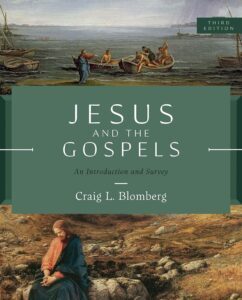
The Complete Father Brown Stories by G.K. Chesterton – $.99
The Indispensables: The Diverse Soldier-Mariners Who Shaped the Country, Formed the Navy, and Rowed Washington Across the Delaware by Patrick O’Donnell – $4.99
These links are all affiliate links to Amazon.
May 27, 2024
Rejoice in Hope
“Rejoice in hope, be patient in tribulation, be constant in prayer.” (Romans 12:12)
Sometimes the commands of the Bible feel impossible. I’m thinking specifically of the commands to rejoice. How am I supposed to just up and be full of praise? That isn’t a thing that naturally wells up in my heart, especially not early in the morning or in frustrating times. So when I read Romans 12:12, which says, “Rejoice in hope, be patient in tribulation, be constant in prayer,” I tend to feel stuck at first.
But we need to see the whole verse. We are not called only to “rejoice” but to rejoice in hope. And what hope are we to rejoice in? None other than the hope we have in Jesus, the sealed and confirmed hope of eternal life and joy with him.
Then it says to be patient in tribulation. Frankly, that sounds even harder than rejoicing. Except that, again, we have hope. So while waiting and persevering aren’t pleasurable, we can do them confidently because of Jesus.
Finally, we aren’t left with the idea that we must do these things in our own power. The verse says to be constant in prayer, so we are to constantly depend on God as we rejoice and persevere. We pray for help. We pray so that our eyes are lifted to where our hope lies. And we pray because communion with God will fill our hearts with rejoicing, no matter the circumstances.
 I originally wrote this post for my church, Immanuel Nashville, in our Daily Pulse email. If you want encouragement from God’s word delivered Monday thru Friday to your inbox, I encourage you to subscribe!
I originally wrote this post for my church, Immanuel Nashville, in our Daily Pulse email. If you want encouragement from God’s word delivered Monday thru Friday to your inbox, I encourage you to subscribe!
May 25, 2024
Kindle Deals for May 25
A few Kindle deals worth your mind and money today:
Heresy: A History of Defending the Truth by Alister McGrath – $2.99
The Gagging of God: Christianity Confronts Pluralism by D.A. Carson – $4.99
Escape from Reason: A Penetrating Analysis of Trends in Modern Thought by Francis Schaeffer – $6.99
Orthodoxy by G.K. Chesterton – $2.99

The Power of Prayer by Charles Spurgeon – $3.99
May 24, 2024
Kindle Deals for May 24
A few Kindle deals worth your mind and money today:
6 Great Ideas by Mortimer J. Adler – $2.99

The Pastor: A Memoir by Eugene Peterson
$3.99
Suffering Is Never for Nothing by Elisabeth Elliot – $2.99
The Heritage of Anglican Theology by J.I. Packer – $2.99

The Mark of the Christian by Francis Schaeffer
$5.99
Jesus: A Very Short Introduction by Richard Bauckham
$6.99
Jesus’s Ascension into Heaven – He Reads Truth
Matthew 28:16-20, Acts 1:1-11, Deuteronomy 31:6, Hebrews 7:26-27, Hebrews 10:11-14
I learned a lot of Bible stories during my Sunday School days. I knew the life of Jesus, the death of Jesus, and the resurrection of Jesus inside and out. But I learned little about the ascension of Jesus. It was generally treated as a “He rode off into the sunset” moment, as if Jesus disappeared from the story until His return in Revelation. What a travesty to have missed the magnificence and importance of this pivotal moment that is full of promise. Wrapped up in the few short accounts of Jesus’s departure from the earth are a handful of truths that shape the direction of all Christians.
First, Jesus promised not to leave His followers alone when He departed. In the same way that God promised the people of Israel that He would not leave or abandon them (Deuteronomy 31:6), Jesus promised, “But you will receive power when the Holy Spirit has come on you” (Acts 1:8). Yes, He was leaving, but the Holy Spirit was coming. And this was no consolation prize or fallback plan. It was the presence and power of God for all believers everywhere. Instead of His ministry being tied to His physical, human presence, it was now expanded to wherever His followers went. This is what He meant when he said, “I am with you always, to the end of the age” (Matthew 28:20). By ascending into heaven, Jesus exponentially increased His kingdom on earth.
Second, Jesus told His followers what their (and our) mission was: “Make disciples of all nations” (v.19). In Acts, He laid out the route they would take to fulfill this mission: “you will be my witnesses in Jerusalem, in all Judea and Samaria, and to the ends of the earth” (Acts 1:8). They were eyewitnesses to His life, death, resurrection, and now, “he was taken up as they were watching” (v.9). We, also, are witnesses to the work of Christ through the Holy Spirit and the Word across the centuries. We, too, have the Holy Spirit empowering us and directing us as disciple-makers, and we are the ends of the earth. So Christ’s mission marches on through the obedience and faithfulness of His Church.
Third, after ascending to heaven, Jesus is now interceding on behalf of all believers while He is “waiting until his enemies are made his footstool” (Hebrews 10:13). He is now our advocate and our Great High Priest in the presence of God until He returns in glory.
The ascension wasn’t the end of the story. It wasn’t a “happily ever after” or a ride into the sunset. It was the fuse for the explosion of Christ’s ministry across the globe and through the ages, the very ministry we are now part of.
I have the privilege of contributing to He Reads Truth, a website of whose purpose is “To help men become who we were made to be, by doing what we were made to do, by the power and provision that God has given us to do it, for the glory of Jesus Christ.” They do this by providing scripture reading plans accompanied by reflections that can be accessed for free online or purchased as print books. This is one of the pieces I wrote for the Encounters with Christ plan.
May 23, 2024
Kindle Deals for May 23
A few Kindle deals worth your mind and money today:
Women and God: Hard Questions, Beautiful Truth by Kathleen Nielson – $2.99
Reactivity: How the Gospel Transforms Our Actions and Reactions by Paul Tripp – $2.99
The Expulsive Power of a New Affection by Thomas Chalmers – $2.99
Caste: The Origins of Our Discontents by Isabel Wilkerson – $2.99
The Lord of the Rings: One Volume by J.R.R. Tolkien – $2.99
The Machine: A Hot Team, a Legendary Season, and a Heart-stopping World Series: The Story of the 1975 Cincinnati Reds by Joe Posnanski – $2.99

The Victors: Eisenhower and His Boys: The Men of World War II by Stephen Ambrose – $2.99

